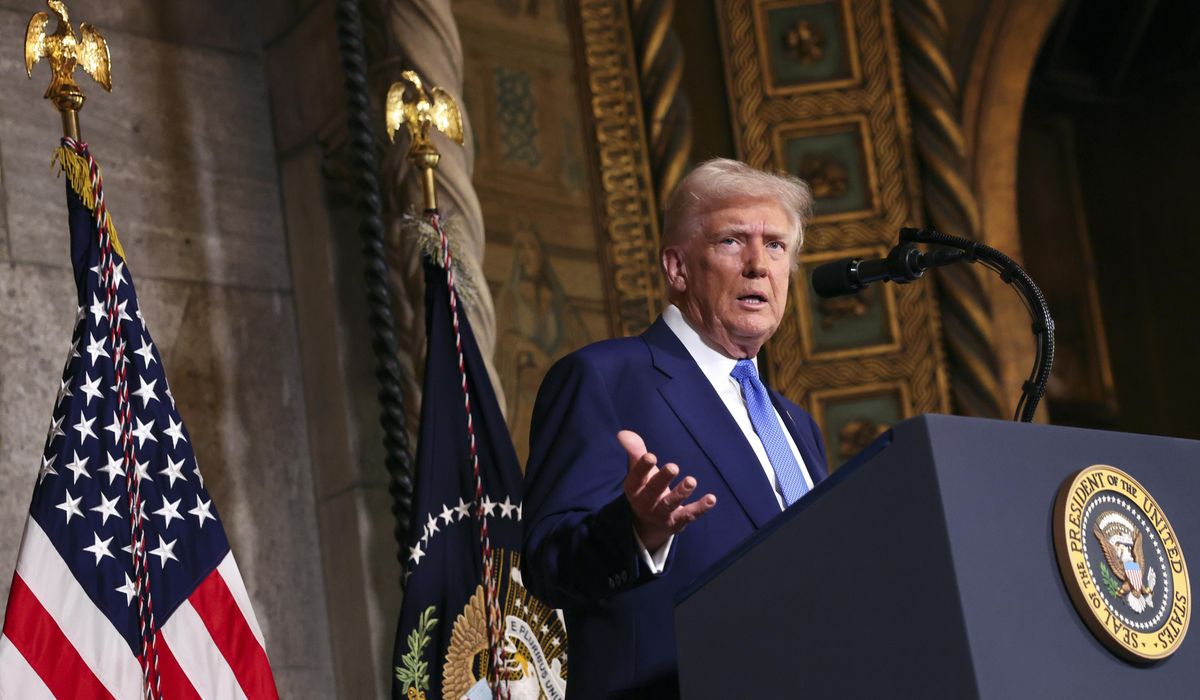


President Trump’s new comments that Ukraine started the war with Russia and that Ukrainian President Volodymyr Zelenskyy is an unpopular “dictator” who refuses to hold elections generated a sharp pushback Wednesday from top European leaders — and a ringing endorsement from Russia’s foreign minister.
Mr. Trump’s harsh posts on Trust Social came shortly after Mr. Zelenskyy accused the new president of living in a “disinformation bubble” created by Russian President Vladimir Putin, whom Mr. Trump reached out to last week to begin bilateral talks on ending the nearly three-year war.
However, some expressed hope that the bad blood between Kyiv and Washington could paradoxically spur all parties involved to get serious about the requirements for a durable ceasefire and the need to support Ukraine after the fighting stops.
“Nobody other than Putin started or wanted this war in the heart of Europe,” German Foreign Minister Annalena Baerbock said in a statement Wednesday. “But no one in Europe should allow any doubt to arise that we are not doing everything we can now for peace and security in Europe and the future of our children.”
French government spokeswoman Sophie Primas described Mr. Trump’s remarks on Ukraine and the origins of the war as “diverse, varied and often incomprehensible.”
“We don’t understand the logic very well,” she acknowledged.
But Russian Foreign Minister Sergey Lavrov, who led the Kremlin delegation that met with Secretary of State Marco Rubio and other top Trump national security aides for face-to-face discussions in Saudi Arabia earlier this week, praised Mr. Trump’s diatribe against the Ukrainian president.
Mr. Lavrov described Mr. Trump as a “completely independent politician … who is used to talking directly.”
“Such people typically do not hide their opinions about pathetic individuals like Mr. Zelenskyy,” he said in remarks to lawmakers in the State Duma according to the state-run Tass news agency.
Mr. Trump “is the first, and I think the only Western leader so far, to say publicly and loudly that one of the root causes of the Ukrainian situation was the previous administration’s cocky policy of pulling Ukraine into NATO,” Mr. Lavrov said.
The mudslinging went on even as U.S. allies who support Ukraine were gathering in Paris for the second time in a matter of days Wednesday to discuss the scrambled diplomatic landscape engineered by the new Trump administration, and to affirm they would only back a peace deal that had the support of the Ukrainian government itself.
“It’s a fundamental principle for Canada and for the vast majority of our allies. … Nothing about Ukraine without Ukraine,” Canadian Prime Minister Justin Trudeau said in Paris ahead of Wednesday’s meeting.
Former British Prime Minister Boris Johnson, a sometime political confidant of Mr. Trump, argued in effect that Mr. Trump’s words attacking Mr. Zelenskyy should — in the famous formulation — be taken seriously but not literally.
“Of course, Ukraine didn’t start the war. You might as well say that America attacked Japan at Pearl Harbor,” Mr. Johnson wrote in a social media post. “Of course, a country undergoing a violent invasion should not be staging elections. There was no general election in the U.K. from 1935 to 1945. Of course, Zelenskyy’s ratings are not 4%. They are actually about the same as Trump’s.”
Mr. Trump’s provocative words, Mr. Johnson argued, “are not intended to be historically accurate but to shock Europeans into action.”
• David R. Sands can be reached at dsands@washingtontimes.com.
